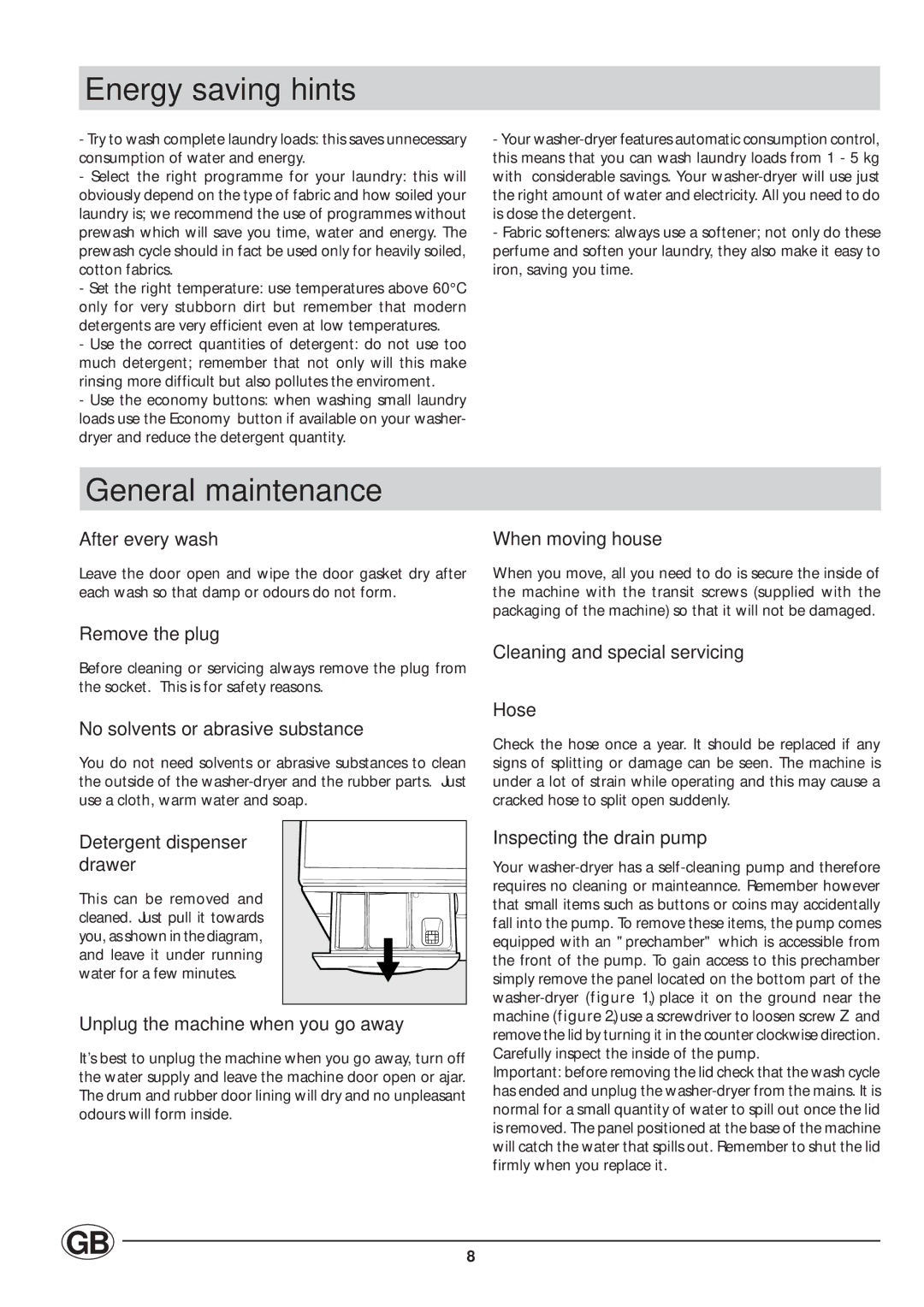WDG1195WG/1, WDG1195WG specifications
The Indesit WDG1195WG and WDG1195WG/1 wash and dry appliances stand out as versatile and efficient solutions for modern households. These models are designed to simplify laundry routines by combining washing and drying capabilities in one compact unit.One of the main features of the Indesit WDG1195WG series is its impressive capacity. With the ability to handle up to 7 kg for washing and 5 kg for drying, it accommodates the needs of small to medium-sized families. This capacity ensures that users can complete laundry tasks efficiently, minimizing the time spent on chores.
In terms of technology, the Indesit WDG1195WG is equipped with intelligent sensors that optimize drying times based on the load size. This feature not only helps to achieve the best drying results but also contributes to energy efficiency, as it reduces unnecessary energy consumption. The energy rating for these models is notably efficient, making them an eco-friendly choice for environmentally-conscious consumers.
The appliance includes several washing programs tailored to various fabric types and laundry needs. Users can select from a range of settings, including programs for cotton, synthetic, and delicate fabrics. This versatility allows for custom-tailored care for garments, ensuring that items are treated appropriately for their specific requirements.
The WDG1195WG series also features a fast wash option, which allows users to clean lightly soiled items in a hurry, reducing wash times significantly. This is particularly beneficial for busy households that require quick turnaround for essential clothing.
Another characteristic that enhances usability is the intuitive control panel. Featuring easy-to-read icons and a straightforward layout, this user-friendly design enables individuals to set the preferred program and options without hassle. Furthermore, the delay start function allows users to program their laundry cycle to begin at a later time, accommodating various schedules.
Despite its robust features, the Indesit WDG1195WG remains compact, making it a suitable choice for apartments or homes where space is limited. Its sleek design fits seamlessly into any laundry space, combining functionality with aesthetics.
Overall, the Indesit WDG1195WG and WDG1195WG/1 are exemplary models in the realm of wash and dry appliances, offering convenience, efficiency, and practicality for everyday laundry needs. With their dependable performance and thoughtful features, these models are poised to become a staple in households seeking to streamline their laundry processes.

